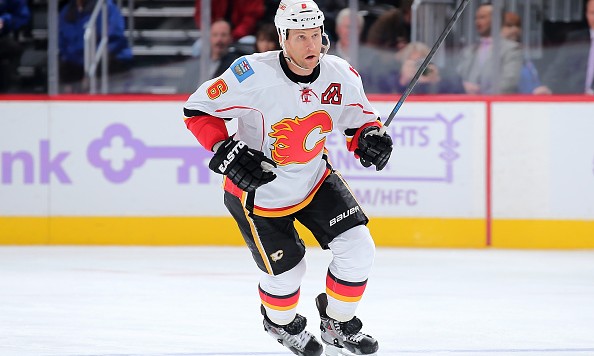As some of you may remember, Dennis Wideman hit a referee this past season and it sparked a million think pieces about whether or not what happened was the right thing. He was initially suspended for 20 games, but after multiple appeals the sentence was reduced to 10 games. It apparently wasn’t to commissioner Gary Bettman’s liking as the arbitrator, James Oldham, has been fired.
Why exactly did it go down the way it did?
The Sports Business Daily’s Liz Mullen got the exclusive with Oldham and was able to confirm why he was let go.
From the Sports Business Daily’s aritcle:
The NHL and the NHLPA declined comment on Oldham’s termination. The NHL CBA allows both the NHL and NHLPA the right to terminate the neutral discipline arbitrator on July 1 for any reason or no reason. The position is fairly new as the right for players to appeal discipline of more than six games to an arbitrator was a new provision in the ’13 CBA. Oldham, a law professor at Georgetown, served in the position from the summer of ’13 until July 1. The only case he heard was the appeal of Wideman’s suspension, which came after he collided with referee Don Henderson, knocking him down. The NHL last month sued the NHLPA to overturn the decision and reinstate the 20-game punishment.
Only one case heard and he was let go. That seems a bit harsh, eh? The problem for both sides is in regard to the precedent they are trying to set for one another. If the NHL doesn’t stick up for the referees then they lose some leverage with them. If the players don’t get this overturned then they won’t have anything covering them in possible concussion issues in the future. It is a sticky situation.
Oldham’s summary statement outlined his feelings on the matter:
The Commissioner’s basic conclusion — that Wideman’s on-ice behavior resulting in Linesman Henderson’s concussion constituted physical abuse of an official calling for Supplemental Discipline for on-ice conduct — was correct. Also, the Commissioner’s use of League Rule 40 (“Physical Abuse of Officials”) as a framework for analysis was appropriate. The Commissioner’s conclusion, however, that Wideman’s behavior constituted intentional action within the meaning of Rule 40.2, automatically triggering a penalty of not less than twenty games, is not endorsed in this appeal because, in my opinion, that conclusion is not substantially supported by the totality of the evidence presented to me at the NDA hearing. In my judgment, the proper penalty should have been that specified in League Rule 40.3. Taking into account Wideman’s eleven years of discipline-free performance as a professional hockey player, there is no occasion to go beyond the ten game minimum specified in Rule 40.3. Dennis Wideman’s penalty, therefore, should be reduced from twenty games to ten games, and it is so ordered.
The ruling seems fair and just according to everything I have read. The league can’t have a decision like this go against them so the firing seemed just, when in reality it is a move so they can gain favor in future rulings. How often that will happen remains to be seen.

